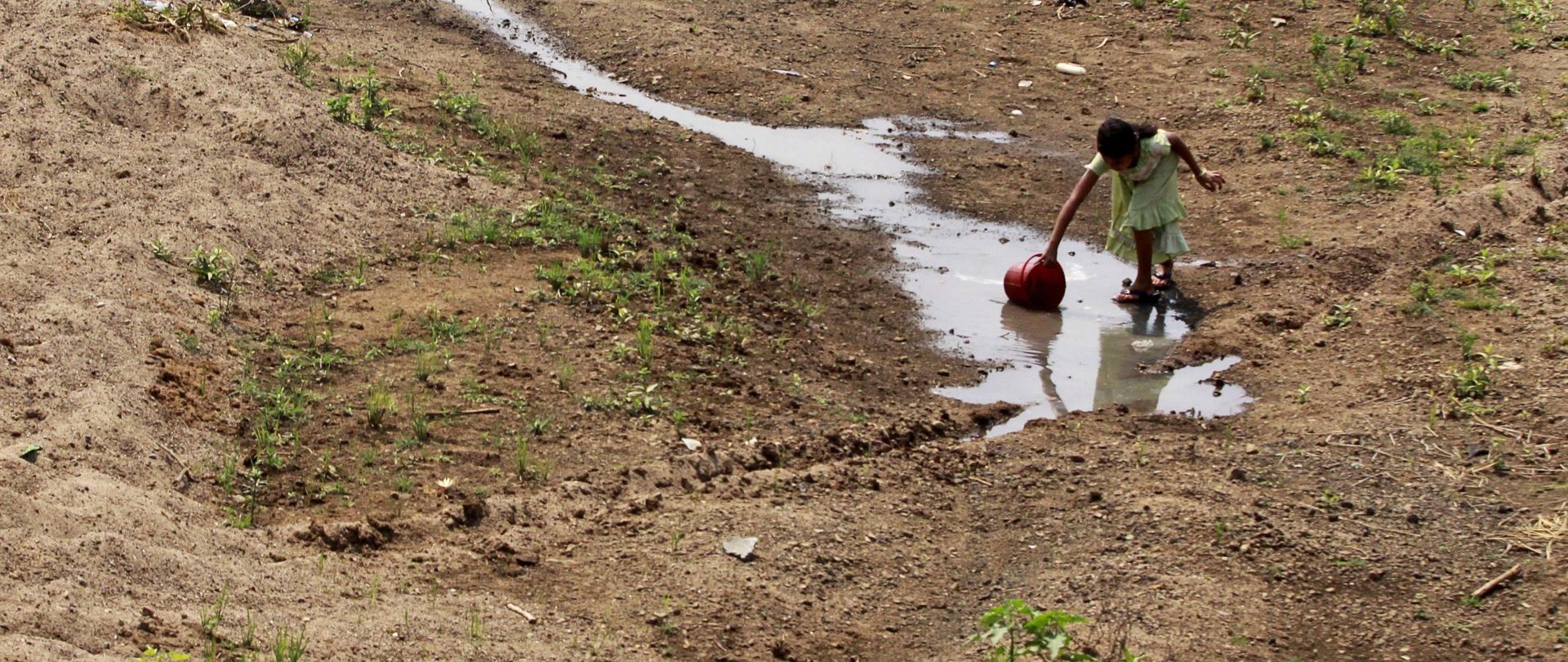
© Biswaranjan Rout, picture alliance
Resource Conflicts
Forecasts predict that demand for food, water and energy will increase by 35, 40 and 50 per cent respectively by 2030. The expected consequences - water shortages, food and energy crises - could jeopardise the security of people and the stability of political systems, both within individual countries and across borders. The water, agricultural and energy sectors each harbour their own supply risks and corresponding political challenges. At the same time, the sectors are interrelated in the context of climate change, population growth and changing living standards and influence each other, also with regard to future trends. For example, the agricultural sector consumes around 70 per cent of the freshwater resources used worldwide, primarily for the production of food, but increasingly also for the cultivation of biomass for energy production. Networked supply risks with cross-sector and cross-border interactions pose a major challenge for policymakers. There is often a lack of political will and processes to implement integrated and long-term sustainable management of resources and risks. However, in the absence of co-operative, consistent and coherent governance approaches, the risk of potentially violent conflicts over resources increases.
Articles on climate policy, energy policy and global commodity markets (focussing on minerals and metals) can be found in separate dossiers.
Publications
-
Sustainable Global Supply Chains Report 2023
Project or Conference Paper 2023, 25.12.2023, 144 Pagesdoi:10.23661/r1.2024
-
From Competition to a Sustainable Raw Materials Diplomacy
Pointers for European Policymakers
SWP Research Paper 2023/RP 01, 24.02.2023, 45 Pagesdoi:10.18449/2023RP01
-
Social Cohesion as the Missing Link between Natural Resource Management and Peacebuilding: Lessons from Cocoa Production in Côte d’Ivoire and Colombia
in: Sustainability 2021, 13(23), 13002, 24.11.2021doi:10.3390/su132313002
-
Due Diligence Regulations in Supply Chains
Podcast-Folge #5 der Podcastreihe "Shaping Sustainable Supply Chains" des Research Network Sustainable Global Supply Chains, Sep. 2021 -
Mineral Value Chains - bad image, great potentials
New Potentials for Driving Sustainability in Mineral Value Chains
Podcast in: sustainablesupplychains.org, 29.06.2021 -
Supply Chain Disruptions and African-European Relations
The Covid-19 pandemic has uncovered the weakness of global supply chains
Podcast in: sustainablesupplychains.org, 10.03.2021